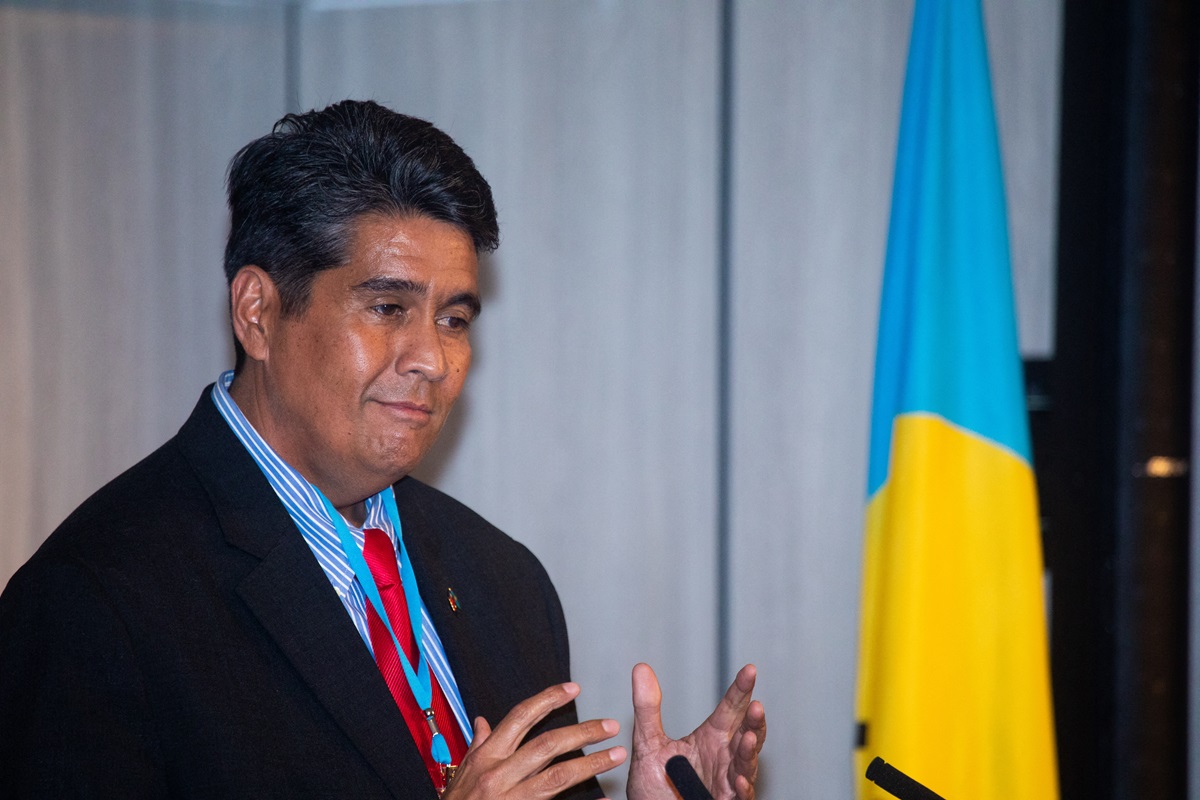Palau’s President, Surangel Whipps Jr., has raised alarms over China’s repeated incursions into the Pacific nation’s maritime territory, highlighting the ongoing tensions regarding sovereignty and territorial integrity. In a recent interview, Whipps reported that Chinese research vessels have been operating “uninvited” within Palau’s exclusive economic zone, despite the government’s persistent complaints and efforts to assert its rights over the waters.
“We keep on raising flags and complaining about it, but they keep on sending them,” Whipps asserted, emphasizing his frustrations with China’s disregard for Palau’s sovereignty. This warning comes shortly after the president’s re-election, as he noted that another Chinese vessel was detected in Palau’s waters earlier this week.
Adding to the complications, Whipps pointed out that Chinese officials had recently assigned new names to two underwater mountains already claimed by Palau. “They’re now naming some of our seamounts Chinese names. Why? Why would you do that?” he questioned, further illustrating the provocative nature of China’s actions in the region.
Palau, a small island nation with a population of around 20,000, maintains its unique stance by recognizing Taiwan’s claim to statehood, a decision that has drawn ire from Beijing. In recent years, China has successfully persuaded several Pacific nations to sever ties with Taiwan and instead align more closely with the Chinese government.
Whipps also expressed concern about China’s assertiveness in the South China Sea, particularly in light of confrontations involving Chinese vessels and the Philippine coast guard. He remarked on the recent clashes in Philippine waters, which have raised alarms about regional stability.
Geographically, Palau is situated about 800 kilometers east of the Philippines, placing it near critical maritime routes. The president is anxious about the broader implications of these territorial disputes. “It concerns us what is happening in the Philippines, the fights over those shoals,” he stated.
Under Whipps’ leadership, Palau has strengthened its military relationship with the United States, which has included the construction of a long-range US radar outpost designed to enhance early warning capabilities as China’s military activities in the Taiwan Strait intensify. Additionally, the nation plans to deepen sections of its commercial port to accommodate more visits from US Navy ships, reinforcing the military cooperation between the two countries.
Palau gained independence in 1994 and has since operated under a “Compact of Free Association” with the United States, allowing for American military use of its territory in exchange for financial support and defense obligations. This partnership grants the US significant strategic access across the northern Pacific, a point underscored by former National Security Council adviser Kathryn Paik.
The economic landscape in Palau has been dramatically affected by its foreign policies. Traditionally reliant on tourism, with a significant influx of Chinese tourists, Palau has faced economic challenges after China effectively blacklisted the nation in 2017 for its continued support of Taiwan. Stripped of tens of thousands of visitors annually, President Whipps is now focused on diversifying the economy through sectors such as fishing and financial services, in addition to seeking investments from allies including Japan and the United States.
“We’re paying the price because of our decision to continue our very important relationship with Taiwan,” Whipps commented, reaffirming his commitment to maintaining strong ties with the island nation. As Palau navigates these complex geopolitical waters, the president emphasizes the necessity of economic diversification as a way to mitigate the repercussions of its diplomatic choices.













